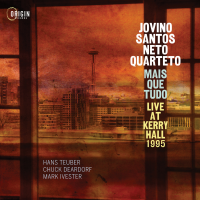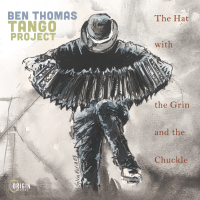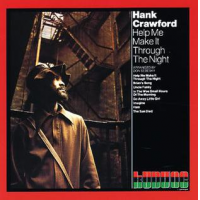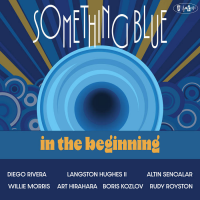Home » Jazz Articles » Liner Notes » Pete Malinverni: Invisible Cities
Pete Malinverni: Invisible Cities
In Calvino's novel, Marco Polo tells of 55 cities he has visited. The descriptions are fantasies. But Marco Polo's prose-poetry and surreal urban imagery contain deeper truths than factual travelogues. They suggest the infinite possibilities of human imagination, expressed in the city as metaphor.
This album is the manifestation of Pete Malinverni's Calvino Effect. Calvino's book had such an impact on him that he once studied Italian so that he could read it in its original language.
Jazz is the most urban of art forms. The major cities of the world, and many of the minor ones, are the subjects of jazz songs. (Monk wrote "Hackensack.") This album is an urban jazz journey. For some of the stops along the way, Malinverni used music that already existed. For other destinations, he composed his own. All of it flows into a suite, a single arc, Malinverni's personal spiritual itinerary of cityscapes.
The Players
Malinverni, tenor saxophonist
Rich Perry
saxophone, tenor
Tim Hagans
trumpetb.1954
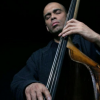
Ugonna Okegwo
bass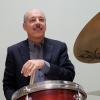
Tom Melito
drumsThe Cities
"I Love Paris" Malinverni says, "I used to distrust the stuff that came quickly and easily. I've learned that it's usually the best stuff, the most natural." The themes for the original compositions in Invisible Cities and the ideas for the arrangements mostly came quickly to him. The introductory horn line for "I Love Paris," and the notion that "the song is basically in two halves, one major, one minor," came while he was jogging in Greenwich Village.But even when the germs of ideas come easily, time is required to flesh them out. Malinverni spent several months creating the album's crisp charts with all their deft, telling details, touching in the horn backgrounds, discovering group concepts that are disciplined and orderly yet open up spaces for unrestricted individual expression.
"I Love Paris" starts this album off on a wicked little groove, with a sideways, deadpan, classically hip solo from Rich Perry. One jazz critic (OK, it was me) once wrote in JazzTimes, "Of all the great unknown tenor players in the world, the greatest of all may be Rich Perry." This writer stands by the statement, except that Rich Perry is much less unknown than he used to be. (To cite just one example, he is featured on Maria Schneider's latest album, Sky Blue.) Perry's oblique approach to every solo feels offhand until you perceive the intricate subtle coherence of the design he has made. "I Love Paris" establishes that this city tour will not be without wit and joie d'vivre.
"New Orleans (Cities And Desire)"
But the next track is a totally different dark atmosphere. There have been many jazz responses to the catastrophe that struck the city where jazz was born, and to the national failure and disgrace that followed. Malinverni's piece is one of the most affecting and authentic, an unusual jazz funeral march in three. Whispered by Tim Hagans' muted trumpet, a simple motif floats all through it, an unanswerable question, a call without a response.
"Chicago"
Another mood shift. Those jagged harmonies between the horns, those funny intervals, suggest ambivalence about this "toddling town." Malinverni's almost Monk-like, teetering, lurching solo feels ironic. Rich Perry always feels ironic. Irony does not preclude affection.
"Venice (Cities And Memory)"
An actual city of wrong turns as impossible and illusory as any in Calvino's book. Malinverni says, "I want the music to evoke a town band marching through some little piazza as evening falls, the players sounding as though they know the secrets of everyone listening."
"Cities And Time"
The ostinato from Okegwo and Melito is relentless, one bar of five beats and one bar of three. Perry and Hagans slowly sway and swerve over the top. Malinverni's piano flows into and out of the two different rhythmic tonalities. There are cities where time is plastic and where everything is relative, even (or especially) swing.
"Lonely Town"
One aspect of New York. In On The Town, Leonard Bernstein's musical from which this song comes, three sailors on 24-hour shore leave during World War II become enamored of New York. It is when the city turns lonely for them that it becomes universal: "Unless there's love, the world's an empty place/And every town's a lonely town." It is a perfect song for that most world-wise of romantics, Rich Perry. Malinverni's solo is an elegant construct, inspired by Bernstein's music but tangential to it, in which every note begets the next unexpected note. Malinverni has compared his own creative process to that of a Method actor: "I think that the only chance for the audience to feel anything is if the artist feels everything."
"Istanbul"
A piece simultaneously catchy, exotic, and suave. Malinverni wrote it years ago, but came up with a new bridge whose melody cries out to be played by Carmen Cavallaro. In a clever twist, the bridge is the only part of the song not played with a Latin beat. Tim Hagans' agile navigation of the changes may be his best solo on the album: consummate athleticism in the service of art.
"Salem (Hester Prynne)"
Malinverni wrote it after rereading The Scarlet Letter. "You understand Hester Prynne differently when you are older," he says. Malinverni and Hagans each offer up sweet, unsentimental poignance on behalf of the great, wronged Hester.
"There's A Boat Dat's Leavin' Soon For New York"
New York not as "lonely town" but as the city that never sleeps, the teeming streets, the melting pot, the single most happenin' scene on the planet. Malinverni says of the town where he lives, "There should always be a way to get to New York."
"A City Called Heaven"
A circle completing, but not an end of the journey, as much new beginning as closure. Malinverni is faithful to the humility and majesty of this hymn even as he applies his own art to it, in the graceful, meaningful counterlines from the horns, and his own solo, those trills and clusters that reach and climb and aspire. As for Okegwo's solo, it exemplifies why only the existential art form called jazz can fulfill certain needs of the human spirit. Okegwo's spontaneous invention is freely in the moment, gone on the air once played, and yet also absolute, leaving nothing important about its subject unsaid. Malinverni believes that "a good jazz record should have the feeling that 'this happened one time.' This one does.
Track Listing
I Love Paris; New Orleans - Cities & Desire; Chicago; Venice--Cities & Memory; Cities & Time; Lonely Town; Istanbul; Salem--Hester Prynne; There's a Boat Dat's Leavin' Soon For New York; A City Called Heaven.
Personnel
Pete Malinverni
pianoTim Hagans
trumpetRich Perry
saxophone, tenorUgonna Okegwo
bassTom Melito
drumsAlbum information
Title: Invisible Cities | Year Released: 2008 | Record Label: Reservoir Music
Tags
Comments
PREVIOUS / NEXT
Pete Malinverni Concerts
Sunday Jazz Alfresco
ArtswestchesterWhite Plains, NY
Support All About Jazz
 All About Jazz has been a pillar of jazz since 1995, championing it as an art form and, more importantly, supporting the musicians who make it. Our enduring commitment has made "AAJ" one of the most culturally important websites of its kind, read by hundreds of thousands of fans, musicians and industry figures every month.
All About Jazz has been a pillar of jazz since 1995, championing it as an art form and, more importantly, supporting the musicians who make it. Our enduring commitment has made "AAJ" one of the most culturally important websites of its kind, read by hundreds of thousands of fans, musicians and industry figures every month.







 Buy Now
Buy Now






